Counting skills Numbers 11–20 Worksheets for 6-Year-Olds
5 filtered results
-
From - To
Enhance your 6-year-old's counting skills with our engaging worksheets focused on numbers 11 to 20! These fun and interactive resources encourage children to practice counting, number recognition, and basic addition through colorful activities designed specifically for early learners. Each worksheet features vibrant images and straightforward tasks to capture your child's interest, making learning enjoyable. Perfect for homeschooling or supplementary practice at school, these worksheets help build a solid numerical foundation that sets the stage for future math success. Download and explore our variety of activities to boost confidence in counting and foster a love for learning in your young mathematicians!
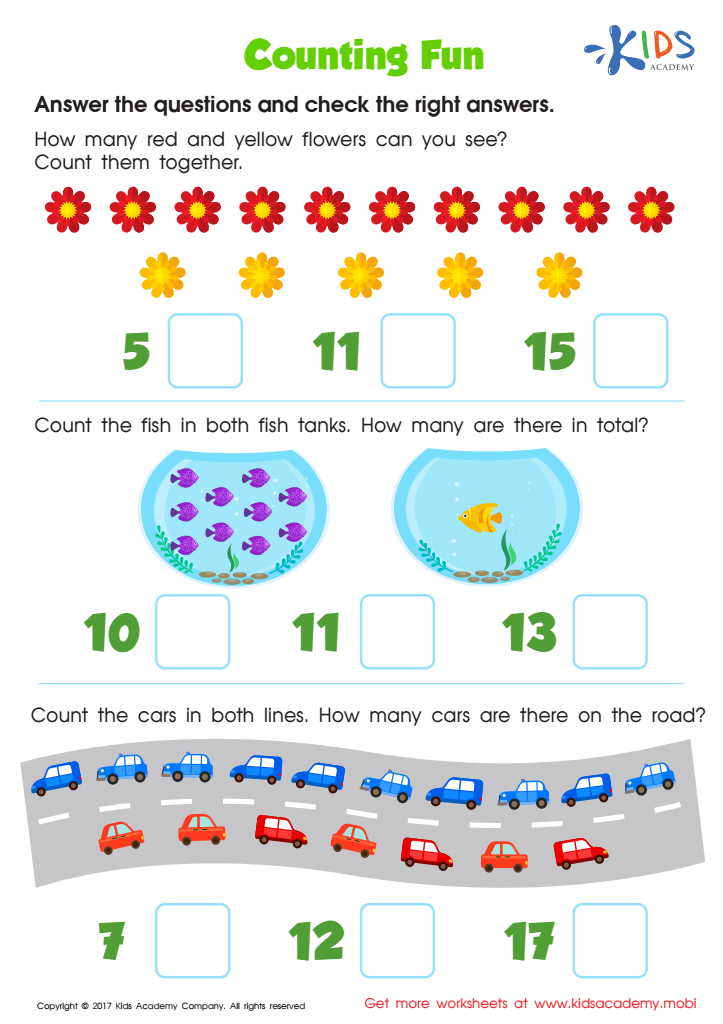

Counting Fun Worksheet
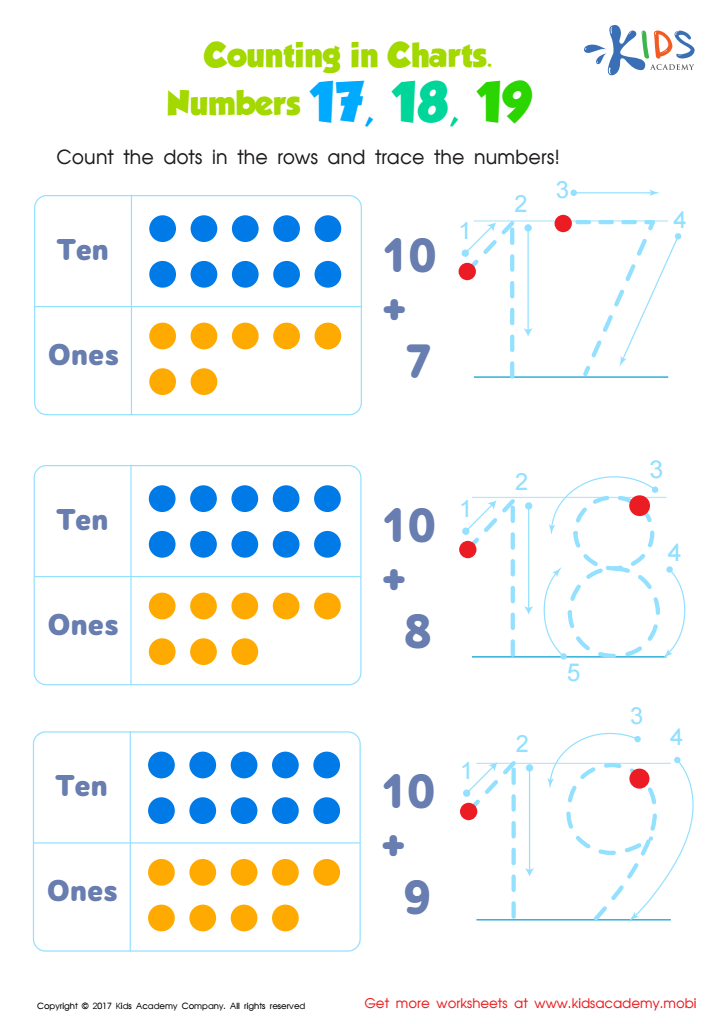

Kindergarten Number Tracing: Counting in Charts Worksheet
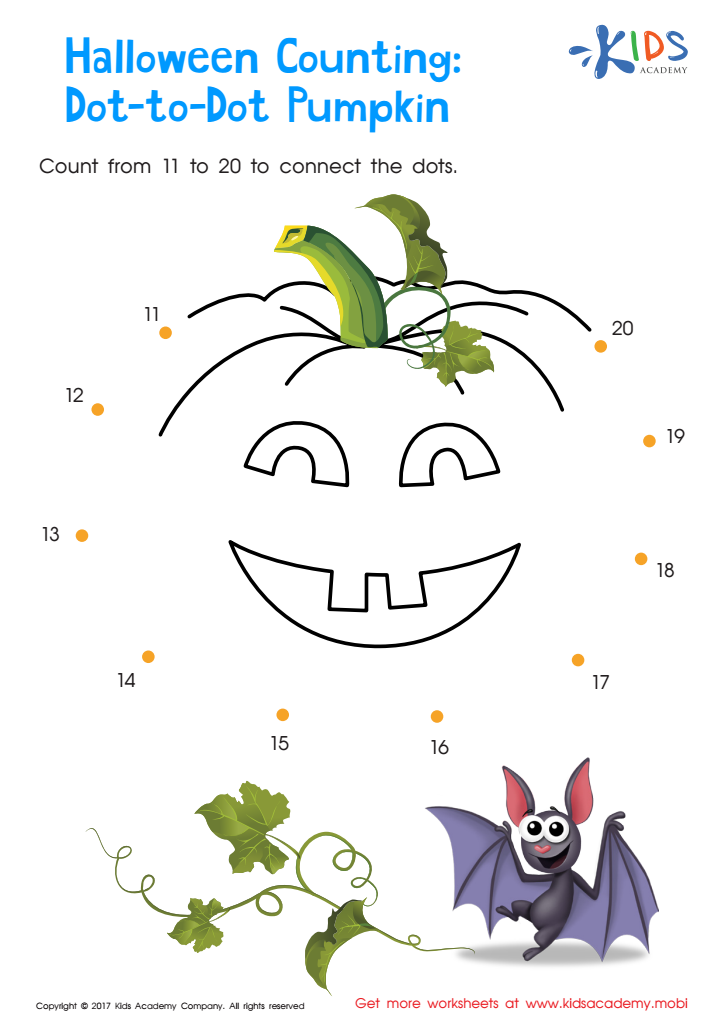

Ordering 11–20: Halloween Counting Worksheet
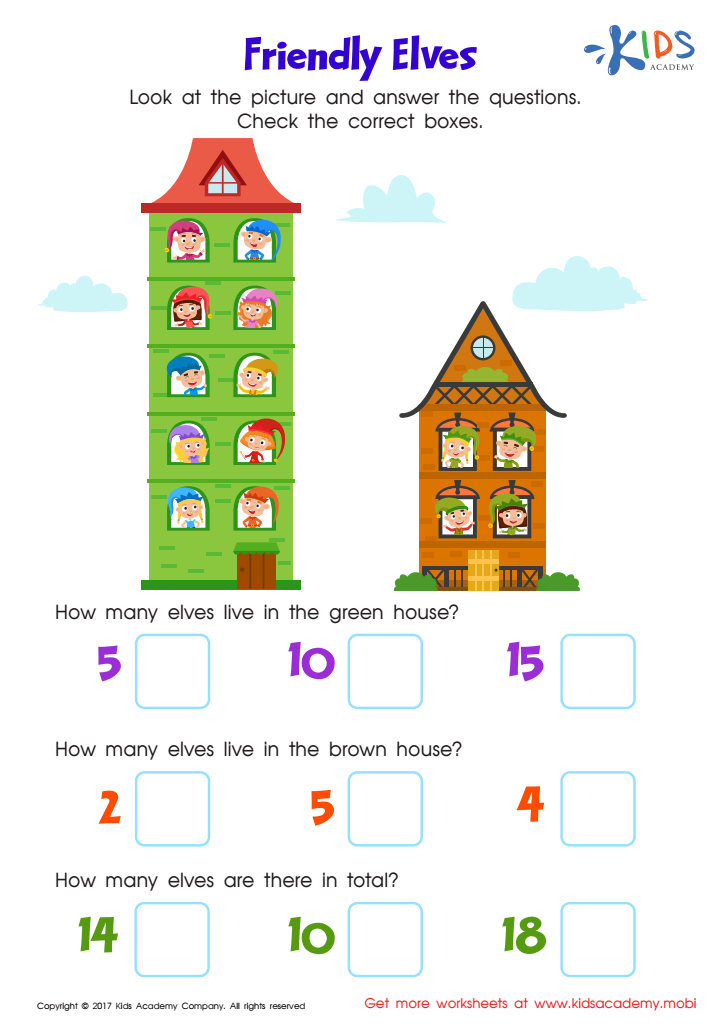

Place Value: Friendly Elves Worksheet
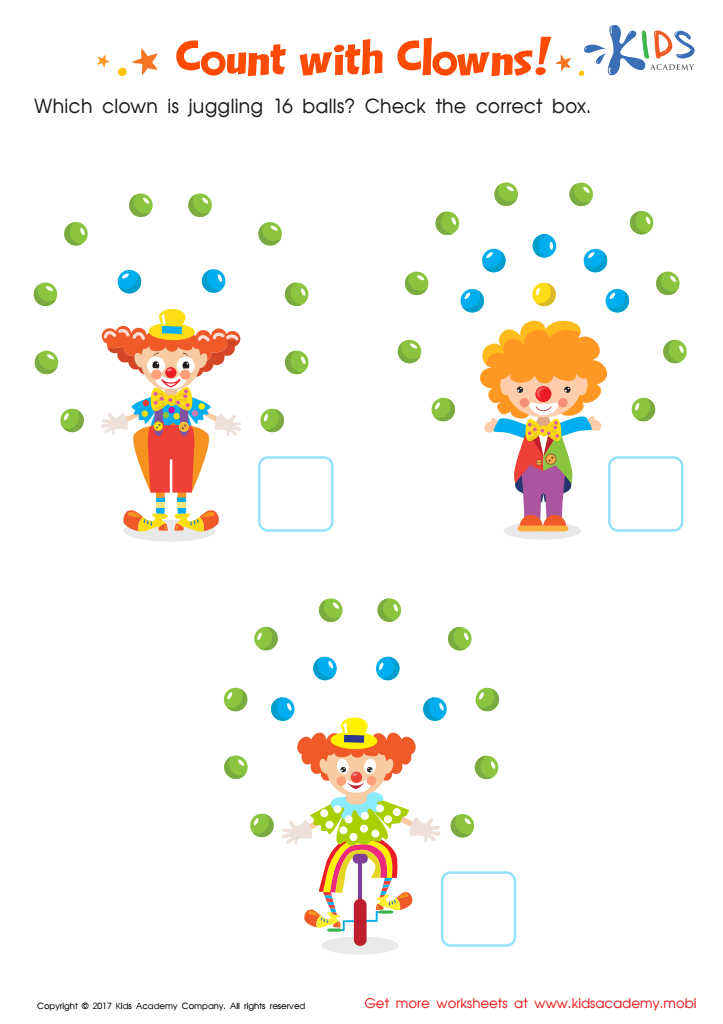

Count with Clowns Worksheet
Counting skills, especially for numbers 11–20, are crucial for 6-year-olds as they lay the foundation for future mathematical understanding. At this stage, children transition from simply recognizing numbers to developing a deeper comprehension of numerical relationships and counting sequences. Mastering numbers 11-20 is essential for promoting number sense, which includes recognizing quantity, understanding place value, and eventually performing addition and subtraction within this range.
When children are proficient with counting in this range, it enhances their ability to engage with math in everyday situations, from figuring out how many apples to buy at the store to sharing toys with friends. This skill also aids in building confidence which fosters a positive attitude toward learning.
Furthermore, understanding counting skills helps to develop critical cognitive abilities, such as problem-solving and logical thinking. It encourages hands-on experiences and engages children by paving the way for understanding patterns, sequences, and basic arithmetic operations.
For parents and teachers, fostering these skills means more than just academic preparedness; it helps to cultivate a love for math and learning that can last a lifetime. Investing in these key counting skills can make a significant difference in a child's educational journey.
 Assign to My Students
Assign to My Students















